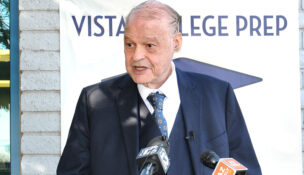Education Enactments
Arizona Capitol Reports Staff//July 21, 2006//[read_meter]
The following is a list of education related bills passed by the 47th Legislature and signed by Governor Napolitano. CH 4 H 2064 FLORES; ENGLISH LEARNERS; FUNDING A nine-person English...
No tags for this post.

















